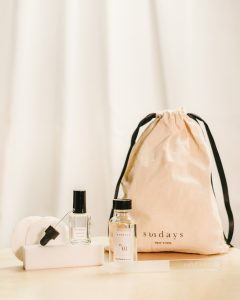Baking is one of life’s sweetest joys, but have you ever stopped to think about the hidden chemicals in your ingredients, tools, or even your bakeware? For those of us who prioritize clean living and wellness, adopting non-toxic practices in the kitchen is a must. These tips will help you whip up delicious treats while keeping harmful toxins far from your kitchen. Here are 10 non-toxic baking tips to elevate your baking game while aligning with your clean-living lifestyle.
This article is similar to our other post about Non-Toxic Candles: Elevating Your Self-Care Ritual with Clean Scents.
This article includes:
- Non-toxic baking tips
- Clean baking ideas
- Organic baking ingredients
- Toxin-free bakeware
- Healthy baking hacks
- Natural sweeteners for baking
- Aluminum-free baking powder
- BPA-free baking tips,
Let’s get to it!
10 Non-Toxic Baking Tips for a Healthier Kitchen
1. Opt for Organic Ingredients
Whenever possible, choose organic flour, sugar, eggs, and other staples. Organic ingredients are free from synthetic pesticides, fertilizers, and GMOs, offering a healthier alternative.
2. Switch to Unbleached Flour
Many flours are bleached with chemicals like chlorine gas. Opt for unbleached flour to avoid unnecessary additives while keeping your baked goods just as delicious.
3. Use Non-Toxic Bakeware
Your bakeware matters as much as your ingredients. Non-stick pans often contain chemicals like PFOA and PFAS, which can leach into food. Instead, opt for glass, stainless steel, or ceramic bakeware.
4. Choose Natural Sweeteners
Skip refined sugar and sweeten your treats with natural alternatives like honey, maple syrup, or coconut sugar. These options are less processed and often have added nutritional benefits.
5. Ditch Artificial Food Coloring
Brightly colored frosting might look fun, but artificial food dyes can contain harmful chemicals. Use natural options like beet juice for red, turmeric for yellow, or spirulina for green to achieve vibrant hues.
6. Stick to Real Vanilla
Imitation vanilla might be cheaper, but it often contains synthetic additives. Splurge on pure vanilla extract for a richer, more natural flavor.
7. Avoid Aluminum-Based Baking Powders
Many conventional baking powders contain aluminum, which has been linked to health concerns. Look for aluminum-free options to keep your baked goods toxin-free.
8. Go BPA-Free
If you’re using canned ingredients like pumpkin or condensed milk, choose brands that offer BPA-free packaging to avoid harmful chemicals in your food.
9. Use Silicone Baking Mats
Instead of disposable parchment paper or foil, invest in reusable silicone baking mats. They’re free from toxins, eco-friendly, and easy to clean.
10. Store Smart
How you store your ingredients matters too. Avoid plastic containers and opt for glass jars or stainless-steel tins to keep your pantry organized and toxin-free.
Why Non-Toxic Baking Matters
Choosing non-toxic baking methods isn’t just about avoiding harmful chemicals—it’s about creating a healthier home environment. It’s a small change with a big impact on your well-being, especially when baking for your family or loved ones.
Baking clean doesn’t mean sacrificing flavor or fun. By following these 10 non-toxic tips, you can indulge in your favorite treats guilt-free, knowing you’ve made healthier choices for yourself and the planet. So, grab your apron and get ready to bake with confidence!
Next, check out our other post about The Ultimate Guide to Non-Toxic Lip Gloss: Elevate Your Clean Beauty Game.






